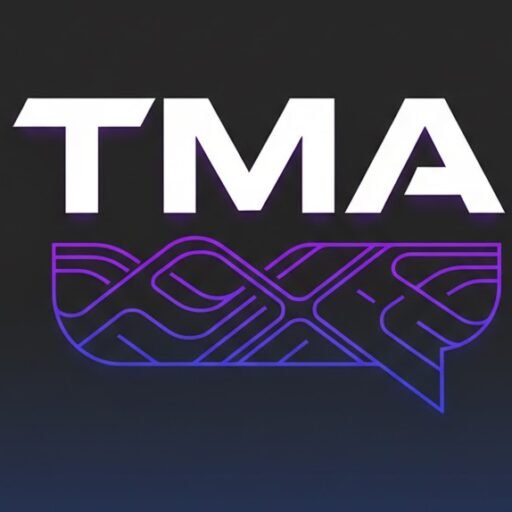Market Pulse
In a significant blow to crypto-native institutions seeking deeper integration with the traditional financial system, a U.S. court has upheld the Federal Reserve‘s broad discretionary power to deny crypto banks direct access to its crucial master accounts. This ruling, coming just as November 2025 begins, reaffirms the central bank’s gatekeeping role and erects further barriers for digital asset firms aiming to bypass traditional intermediaries, casting a long shadow over the industry’s ambitions for financial inclusion and regulatory clarity.
The Master Account Imperative for Crypto Banks
Master accounts, provided by the Federal Reserve, offer direct access to the nation’s payment systems, enabling institutions to clear and settle transactions without relying on intermediary banks. For crypto banks and special-purpose depository institutions (SPDIs), securing a master account is not merely a convenience; it’s a lifeline. It signifies regulatory legitimacy, reduces operational costs, and mitigates counterparty risk by allowing direct participation in Fedwire and other services.
- Direct Access: Eliminates the need for correspondent banks, streamlining operations.
- Cost Reduction: Lowers fees associated with third-party banking services.
- Risk Mitigation: Reduces exposure to potential failures of intermediary institutions.
- Regulatory Legitimization: Grants a perceived seal of approval from the central banking authority.
Historically, obtaining master account access has been a complex and often opaque process, especially for novel financial entities. Crypto banks, like Wyoming-chartered SPDIs, have argued that denying them direct access amounts to discriminatory practice, stifling competition and innovation within the financial sector.
Decoding the Court’s Decision
The recent court decision underscores the judiciary’s deference to the Federal Reserve’s authority in managing access to its payment systems. The ruling emphasized that the Fed possesses considerable latitude in evaluating applications, taking into account factors like financial stability, risk management, and the applicant’s adherence to regulatory standards. While specific details of the judgment remain under close scrutiny, the core message is clear: the Fed is not compelled to grant master accounts to every qualified applicant, particularly those in nascent or perceived high-risk sectors.
This effectively greenlights the Fed’s cautious, often protracted, approach to crypto-related entities. For firms like Custodia Bank, which has been at the forefront of this legal battle, the path to direct access remains arduous, if not entirely blocked by the latest judicial interpretation. The court’s stance suggests a preference for the existing tiered banking structure, where commercial banks act as primary conduits to the central bank, rather than welcoming a diverse array of new direct participants.
Implications for Digital Asset Innovation
The implications of this ruling are far-reaching. For the crypto industry, it means:
- Continued Reliance on Traditional Banks: Crypto businesses will remain largely dependent on crypto-friendly commercial banks, which can introduce single points of failure and increase operational costs.
- Slower Innovation: Direct access could accelerate the development of new payment systems and financial products leveraging blockchain technology. Its denial may slow down such advancements in the US.
- Regulatory Uncertainty Persists: While the ruling clarifies the Fed’s power, it doesn’t provide a clear, standardized framework for how crypto entities *can* gain direct access, perpetuating uncertainty.
- Potential for Regulatory Arbitrage: Firms might increasingly look to jurisdictions with more accommodating regulatory environments, potentially driving talent and capital overseas.
The decision reinforces a perceived regulatory “moat” around traditional finance, making it harder for innovative digital asset companies to disrupt established payment rails within the United States.
The Road Ahead: Advocacy and Adaptation
In response to this judicial setback, the crypto industry is likely to intensify its lobbying efforts for clearer federal legislation regarding digital asset banking and access to critical financial infrastructure. State-level initiatives, such as those seen in Wyoming with its SPDI charters, may also seek to find new avenues for their licensed institutions, though their ultimate effectiveness without federal recognition remains a challenge.
Firms may also pivot to adapting their business models, focusing on strengthening relationships with existing correspondent banks and innovating within the confines of current regulatory realities. However, the dream of a truly integrated, direct connection between the decentralized digital economy and the foundational central banking system appears to have been deferred, at least in the immediate future.
Conclusion
The U.S. court’s decision affirming the Federal Reserve’s right to deny master account access to crypto banks represents a significant moment for the digital asset industry. It underscores the challenges innovative financial firms face when attempting to navigate and integrate with long-standing traditional financial structures. While advocates will continue to push for a more open and inclusive financial system, the immediate reality for crypto banks is one of continued reliance on intermediaries and persistent regulatory hurdles, solidifying the Fed’s cautious stance as the gatekeeper of the nation’s payment rails.
Pros (Bullish Points)
- Upholds the traditional financial system's stability and risk management frameworks.
- Provides regulatory clarity regarding the Fed's discretionary power in granting master accounts.
Cons (Bearish Points)
- Creates significant hurdles for crypto banks seeking direct access to payment systems, hindering innovation.
- Increases reliance on traditional intermediary banks, potentially leading to higher costs and less competition.
Frequently Asked Questions
What is a master account and why is it important for crypto banks?
A master account provides direct access to the Federal Reserve's payment systems, allowing institutions to clear and settle transactions without intermediaries, which is crucial for reducing costs, mitigating risk, and enhancing operational efficiency for crypto banks.
How does this court ruling affect the crypto industry?
The ruling reinforces the Fed's ability to deny crypto banks direct access, forcing them to continue relying on traditional banks and potentially slowing innovation and integration of digital assets into the US financial system.
Will crypto banks ever gain direct access to the Fed's payment systems?
While the ruling highlights significant challenges, it doesn't entirely close the door. Future legislative action, evolving regulatory frameworks, or successful appeals/reapplications under stricter compliance might eventually provide a pathway, but the immediate future remains uncertain.






